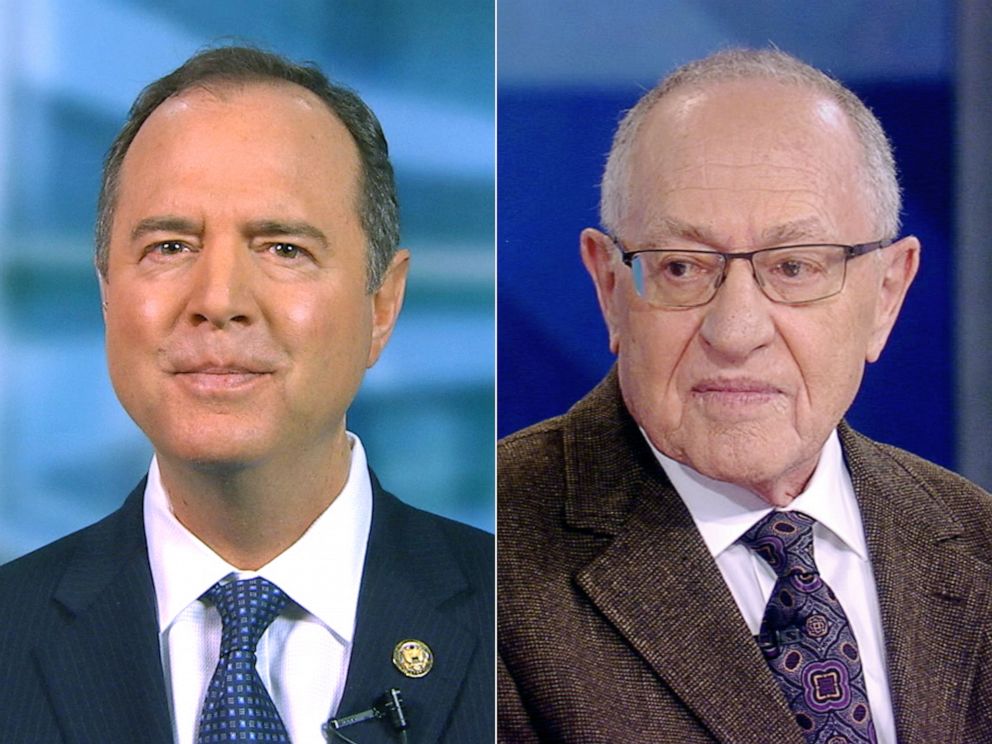Alan Dershowitz won't say if the president did anything wrong
The Senate impeachment trial formally began on Thursday.
Alan Dershowitz, who recently joined President Donald Trump's defense team, refused in an interview on ABC's "This Week" to endorse the formal declaration the president's lead counsels submitted on Saturday.
In a seven-page response to the articles of impeachment, Trump's team called the charges "a brazen and unlawful attempt to overturn the results of the 2016 election and interfere with the 2020 election."
But when pressed on Sunday about the brief the Harvard professor emeritus refused to comment on it.
"I didn't sign that brief. I didn't even see the brief until after it was filed," he told ABC News Chief Anchor George Stephanopoulos. "I have a limited role in the case. I'm only in the case as a counsel on the constitutional criteria for impeachment."
Nor would he weigh in on whether the president did anything wrong.
Dershowitz argued that the president should not be impeached, even if House managers prove their case for abuse of power and obstruction of Congress.
"If the allegations are not impeachable, then this trial should result in an acquittal, regardless of whether the conduct is regarded as OK by you or by me or by voters," he said. "That's an issue for the voters."
Dershowitz constitutional case against impeachment is drawn from an argument that he said was successfully used in President Andrew Johnson's impeachment trial, citing 19th century American jurist Justice Benjamin Curtis.

"The argument is a strong one, the Senate should hear it. I am privileged to be able to make it," he said.
"When you read the text of the Constitution, treason, bribery or other high crimes and misdemeanors, 'other' really means that crimes and misdemeanors must be akin -- akin to treason and bribery," he told Stephanopoulos.
In a separate interview on "This Week," the lead House impeachment manager, Rep. Adam Schiff called the president's formal response to the articles "surprising" because it doesn't offer more than the "failed arguments we heard in the House."
Schiff, called Dershowitz's argument "absurdist."
"You had to go so far out of the mainstream to find someone to make that argument," Schiff told Stephanopoulos. "You had to leave the realm of constitutional law scholars and go to criminal defense lawyers."
House managers outlined their formal case against the president in an 111-page brief filed with the Senate on Saturday night. In the filing, House managers argue that "the facts are indisputable, and the evidence is overwhelming" that the president abused his power by seeking foreign interference in an election and followed that action by obstructing a congressional investigation.
On "This Week," Schiff made the case for having witnesses in the trial.
"If the Senate decides -- if Sen. (Mitch) McConnell prevails and there are no witnesses, it will be the first impeachment trial in history that goes to conclusion without witnesses," he said.
Dershowitz said that the Constitution doesn't speak to whether or not there need to be witnesses in an impeachment trial. However, he also said that if witnesses are allowed, it could cause a delay.
"The one thing that's very clear is that if witnesses are permitted on one side, they have to be permitted on both sides," Dershowitz said. "And if witnesses are permitted, it will delay the trial considerably, because the president will invoke executive privilege as to people like (former national security adviser) John Bolton that will have to go to the court and we'll have to have a resolution of that before the trial continues."
The president's legal team has until noon Monday to submit their full trial brief.




